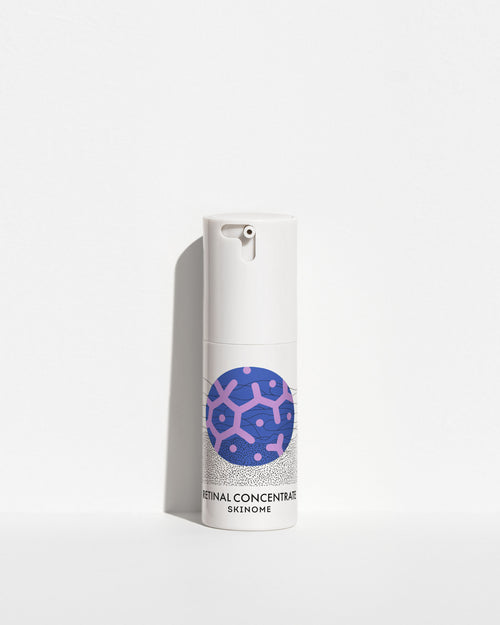2. Rengör huden – men bara på kvällen!
Grundtanken bakom att rengöra huden är att den har samlat på sig partiklar från stadsluften, smuts, fett och andra ohälsosamma ämnen, som behöver avlägsnas från huden. Detta är viktigt men idag är det många som överrengör huden och vetenskapliga studier visar att det finns en koppling mellan för mycket rengöring och några av de mest utbredda hudproblemen som torr och känslig hud eller till och med rosacea.
Under natten bildar huden unika fuktbindande ämnen som ingår i hudbarriären och som bidrar till en mjuk och frisk hud. Ytaktiva ämnen som du hittar i många rengöringsprodukter tenderar att påverka hudbarriären negativt eftersom de även kan lösa upp de hudegna oljor som bildas i huden. Därför är ett viktigt råd för att undvika torr och känslig hud att bara rengöra på kvällen.
Skinome har två rengöringar, Mineral Cleanser och Sensitive Cleanser, som båda rengör milt men effektivt och som verkar återfuktande. De innehåller mycket milda ytaktiva ämnen, hudegna oljor samt även pre- och postbiotika.
3. Mjukgör och återfukta med hudliknande ingredienser
Så kallade hudliknande ingredienser är ämnen som naturligt finns i huden och som huden därför är van vid. Dessa ingredienser arbetar med huden och stöttar hudens naturliga funktion. Huden har ju utvecklats under mer än 300 000 år och är ett superkompetent system som vi helst ska störa så lite som möjligt. Hudliknande fuktbindare och mjukgörare är utan tvekan de viktigaste ingredienserna för en torr och känslig hud.
Mjukgörare: Hudliknande mjukgörare är till exempel ceramider, squalane, lecitin och kolesterol. Dessa finns alla i hudens egen välgörande blandning av oljor och vatten som tillsammans med fuktbindande ämnen är så viktiga för en frisk och stark hud.
Fuktbindare: För att huden ska behålla fukt kan vi hjälpa till genom att tillsätta ingredienser som binder vatten i huden. Glycerin, karbamid (urea) och PCA finns även naturligt i huden där det binder vatten i det översta lagret och återfuktar huden.
När vi utvecklar Skinomes produkter lägger vi stort fokus på att använda hudliknande ingredienser såsom de mjukgörande och fuktbindande ämnen som rekommenderas ovan och som passar en torr och känslig hud. I vår nya fuktkräm Intense Emulsion, som är utvecklad för att vårda och bygga upp känslig och även torr till mycket torr hud, använder vi även sockerarten erytritol som tillsammans med karbamid och PCA ökar hudens fukthalt.












